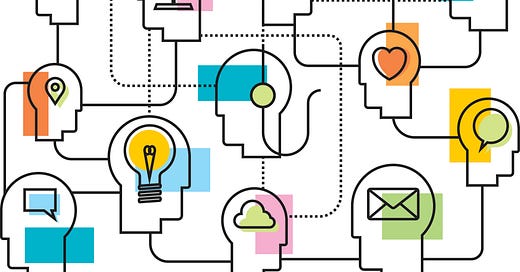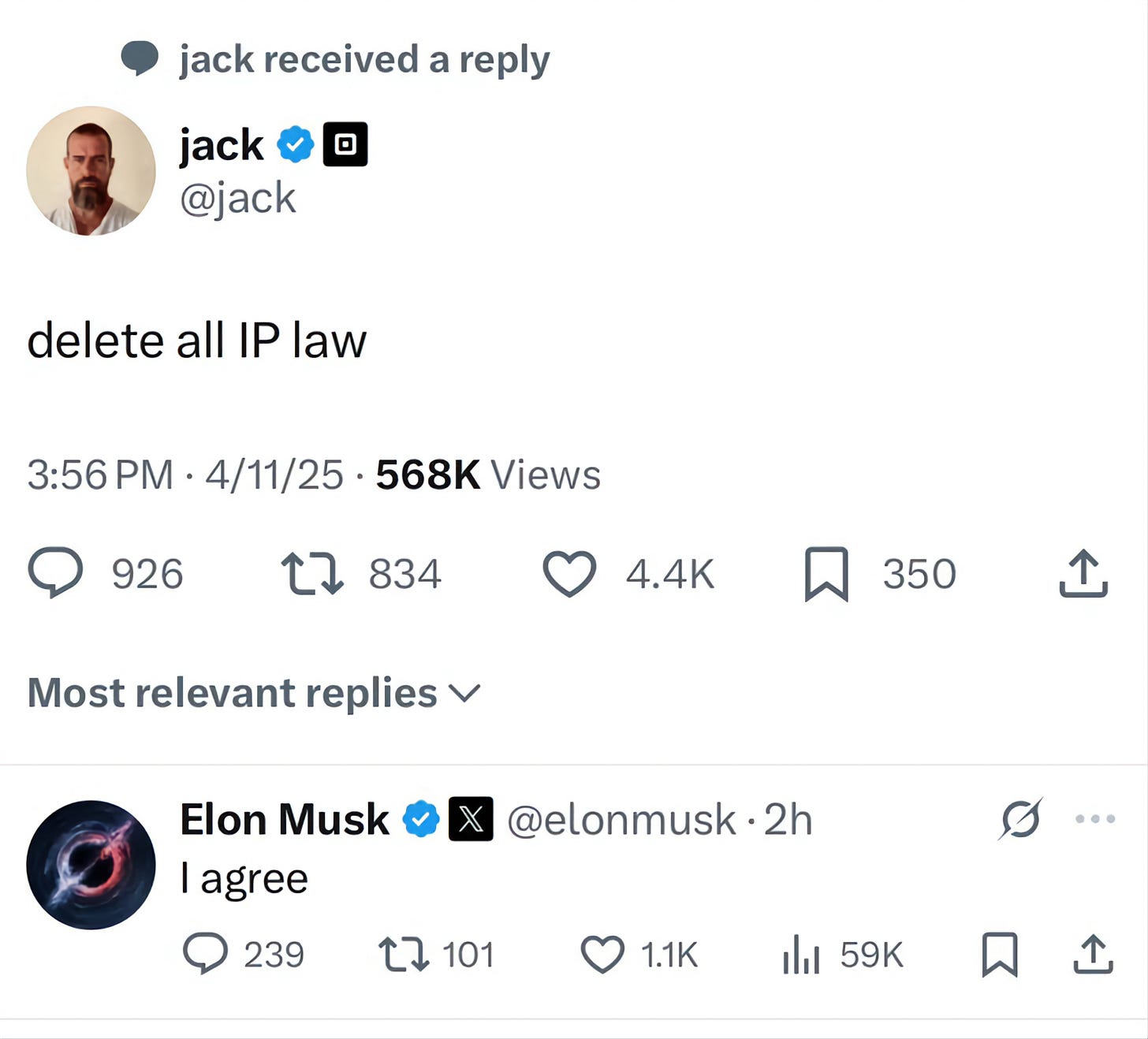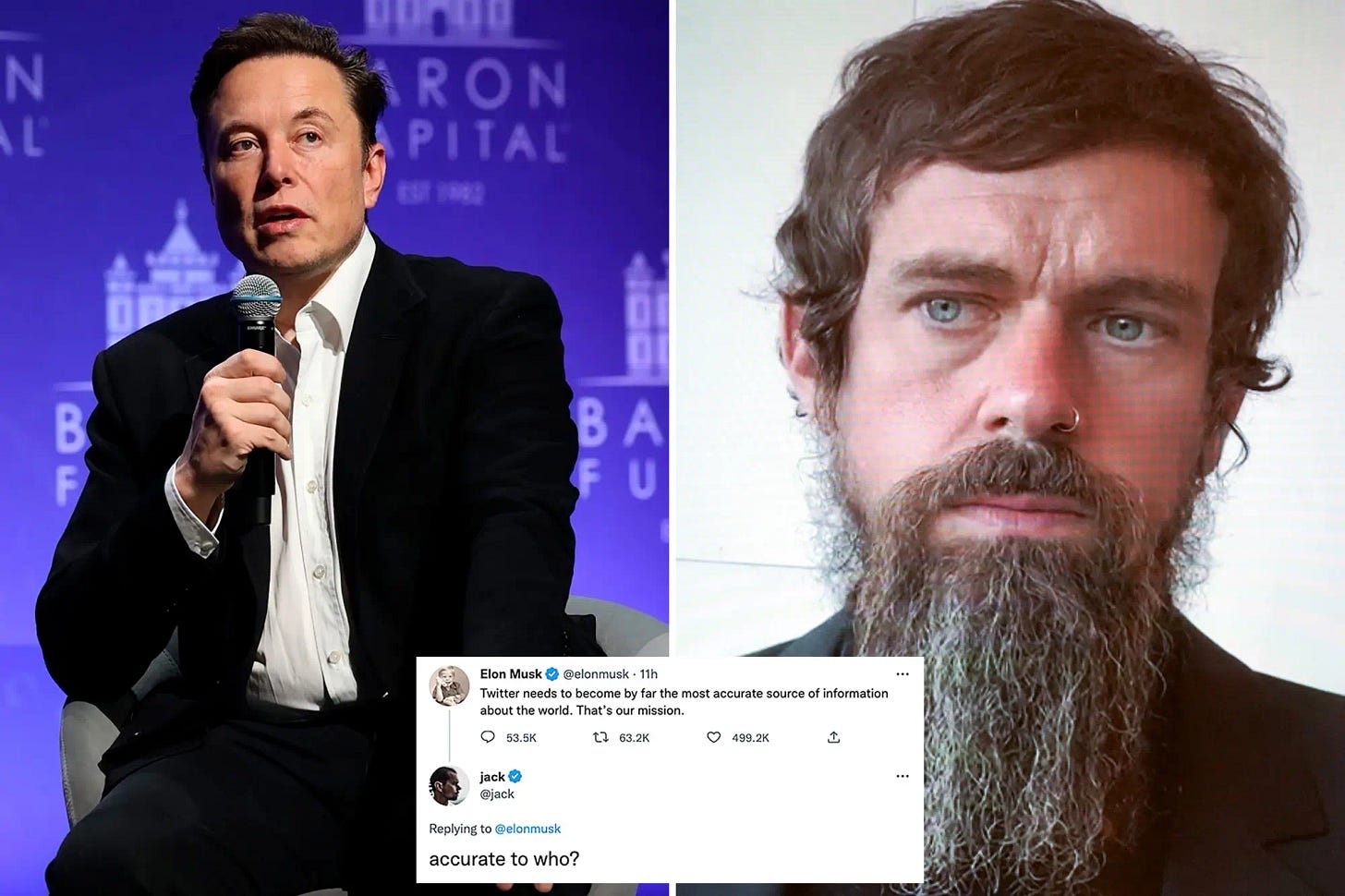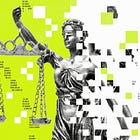The IP Abolition Movement | How Tech Billionaires Are Weaponizing 'Innovation' to Seize Artists' Work 👨🏻⚖️🎸
Why Creators and Listeners Should Unite Against IP Theft
In a digital world where content creation has never been more "democratised," an alarming alliance is forming among tech's most powerful figures. On April 11, 2025, Jack Dorsey, co-founder of Twitter (now X) and Square (now Block), posted four simple words that sent shockwaves through creative industries:
" delete all IP law "
Within an hour, X owner Elon Musk responded:
" I agree "
This seemingly casual exchange between two of tech's most influential billionaires wasn't an isolated incident.
It represents the public face of a coordinated movement that threatens to fundamentally re-shape our understanding of creative ownership, conveniently as AI companies face unprecedented legal scrutiny over copyright infringement.
Far from merely a theoretical & academic debate, this push to dismantle intellectual property protections strikes at the heart of how artists, musicians, writers, and other creators sustain their livelihoods.
As we'll see, the timing of these statements aligns perfectly with the industry's desperate attempt to avoid legal consequences for using copyrighted works without permission.The Perfect Storm | Timing Is Everything
The call to abolish IP laws didn't emerge in a vacuum. Dorsey and Musk's statements come during a period of intense legal pressure on AI companies, including those that both have connections to.
OpenAI; which Musk co-founded, later left, and is now competing with and challenging in court, faces numerous lawsuits alleging copyright infringement in their training processes. Meanwhile, the AI music generation space is embroiled in high-profile litigation, with major record labels including Sony Music, Universal Music Group, and Warner Records suing AI companies Suno and Udio for what the Recording Industry Association of America calls "mass infringement of copyrighted sound recordings".
These lawsuits seek damages of $150,000 per infringed work, potentially creating massive financial liabilities for AI companies that trained their models on copyrighted material without permission. In February 2025, the first major court decision on AI copyright issues sided with Thomson Reuters in its case against ROSS Intelligence, rejecting the AI company's fair use defense.
As legal pressure mounts, suddenly two billionaires decide it's time to question the very existence of intellectual property law? The coincidence is a bit uncanny.
The Corporate Strategy Behind "Delete All IP Law"
Dorsey later “clarified his views,” criticizing existing IP frameworks as "rent-seeking" systems that unfairly benefit intermediaries over creators. This framing allows tech leaders to position themselves as “champions of creators” while simultaneously advocating for policies that would strip those same creators of their legal protections.
The Hypocrisy | Building Empires on IP While Calling for Its Abolition
Perhaps the most glaring contradiction in this anti-IP crusade is that these same tech leaders have built and protected their business empires through aggressive use of intellectual property law.
Writer Lincoln Michel highlighted this hypocrisy when he remarked that
"Neither Jack nor Elon's enterprises would exist without IP law. They simply despise artists."
IP attorney Matthew Asbell points to a startling fact;
"Tesla alone holds 90 U.S. trademarks and 579 patents, about 15 naming Musk as ‘inventor,’ proof that the very entrepreneurs calling for abolition built their empires on IP protections."
This strategic use of intellectual property protection stands in stark contrast to Musk's public stance against IP laws.
Similarly, Dorsey's companies, Twitter/X and Square/Block, rely heavily on trademark protection, patented technologies, and other IP safeguards to maintain their competitive advantage.
The disconnect between these billionaires' public statements and their business practices reveals not a principled position, but a convenient shield for their AI ambitions.The AI Battleground | "Learning Is Not Infringing"
Central to this debate is a novel legal argument being advanced by AI companies that using copyrighted works to train AI models constitutes "fair use" rather than infringement.
Suno co-founder Mikey Shulman (The guy above in the video) exemplifies this position, arguing that "learning is not infringing" and comparing AI training to a child learning music by listening to existing songs. In legal filings, both Suno and Udio contend that their use of copyrighted materials falls within fair use protections.
"Encouraging individuals to create new artistic expressions is precisely what copyright law aims to promote, not obstruct,"
Udio stated in its legal submission. The company argues that its use of existing sound recordings to identify musical patterns constitutes a classic example of fair use.
However, this reasoning conveniently ignores the commercial nature of these AI platforms, which profit from capabilities developed by ingesting copyrighted works without permission or compensation.
The RIAA has responded that
"There is nothing fair about appropriating an artist's hard work, extracting its essence, and re-packaging it to compete with the original creations."
The Human Cost | 75,000 Reasons to Worry
The scale of this threat to creative industries is not theoretical. Sony Music recently revealed it has already requested the removal of more than 75,000 AI-generated deepfakes of its artists' content. These unauthorized AI replicas primarily target the labels' biggest stars, including Harry Styles, Beyoncé, and Queen.
Industry experts believe these detected deepfakes represent only a fraction of the total AI-generated content flooding streaming platforms. The statistics are staggering! Music streaming service Deezer reports that 20,000 new AI recordings are uploaded to its platform daily. AI music generation company Mubert claims to have generated as many as 100 million tracks, while similar app Boomy reportedly produced 17 million. Udio is allegedly generating 10 recordings per second; that's 864,000 new AI generated recordings in a single day.
The Economic Stakes | Creative Industries Under Threat
The economic impact of undermining intellectual property protections would be devastating for creative industries. Sony Music, for example, warned in a UK government submission that proposed changes to copyright laws would be "rushed, unbalanced and irreversible" and could significantly harm the British creative economy, which contributes £7.6 billion (or USD $8.23 billion) annually.
Between 2013 and 2024, Sony Music UK alone invested roughly £540 million into A&R and £484 million into marketing and promotion, making a combined artist-focused investment of more than £1 billion. This level of investment in discovering and developing creative talent would be impossible without the economic incentives provided by intellectual property protection.
The IP system, for all its flaws, was designed to "promote the progress of science and useful arts" by ensuring creators can benefit from their work. Without these protections, the economic foundation of creative industries would collapse, leaving the field open for tech companies to exploit creative works without compensation.
As lawyer Matthew Asbell provocatively asks:
"If they truly believe this, why stop at IP? Let's abolish land ownership and go fully communist! A curious proposal from men who thrived in capitalism."
Conclusion | Seeing Through the Smoke Screen
When billionaires who have built their fortunes on intellectual property suddenly call for its abolition, we should examine their motives carefully. The timing of these statements, coinciding with mounting legal pressure on AI companies, suggests that this is less about philosophical beliefs in “open innovation” and more about evading responsibility for using others' creative works without permission or compensation.
The creative economy and the millions of artists, musicians, writers, and other creators who make our cultural landscape vibrant and diverse, deserve better than to be sacrificed on the altar of tech "innovation." As consumers and citizens, we must recognize this coordinated campaign for what it is;
An attempt to weaponize the language of openness & innovation, to seize control of creative content, and centralize it in the hands of a few powerful billionaires & their tech platforms.
The real innovation we need is the development of ethical AI systems that respect creators' rights while pushing technology forward. Anything less threatens to silence the very voices that make our culture worth experiencing in the first place.
💬 What do YOU think is the future of Intellectual Property in the age of AI? Share your thoughts in the comments below.
🤝🏼 Join us at Vinyl Culture as we continue exploring ways to preserve and evolve an authentic music culture in an age dominated by algorithms and corporate interests.
5️⃣0️⃣0️⃣ SUBSCRIBERS have now joined our mission to protect The Soul of Music in the age of algorithmic manipulation & AI. Thanks a lot to each & every one of you!! 🫵🏼🤝🏼🙌🏻 Together, we can make a difference.









There’s definitely *a lot* to this